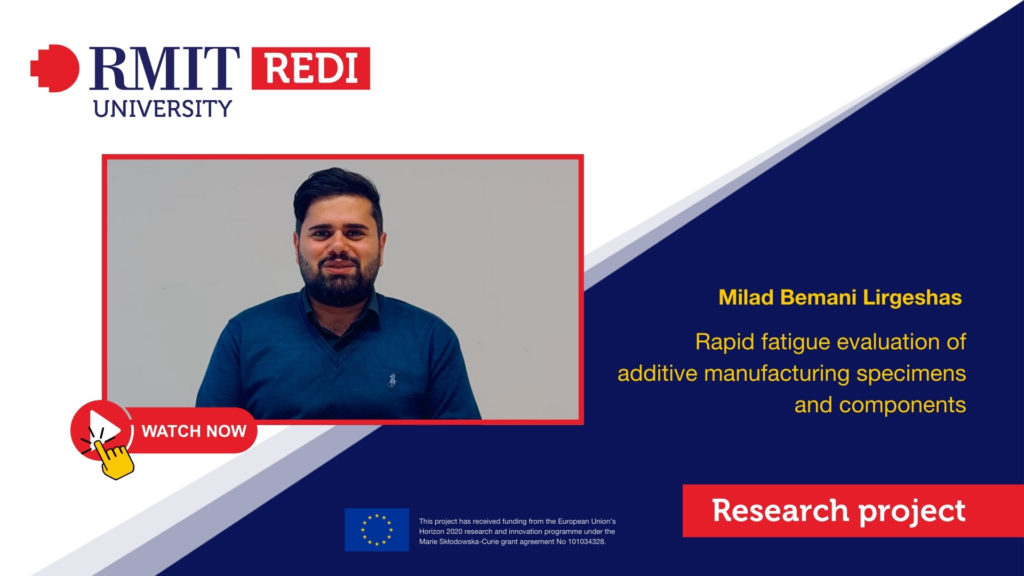In this project, the aim is to evaluate the fatigue limit, mechanism, and strength of different additive manufacturing (AM) specimens and components in a much faster, cheaper, and easier way employing the rapid fatigue evaluation method, the stiffness method.
Using the concept of rapid fatigue testing, it is possible to investigate the effect of each AM defect on fatigue resistance and limit of different AM materials such as stainless and maraging steels, aluminium, and titanium.
Having a full understanding of the fatigue mechanism and fracture toughness of AM products and relating each property to defects, microstructure, and inherent properties of different materials can be performed with more than 90% of the time and resources saved through our project results.
Watch a video about Milad’s project:
